
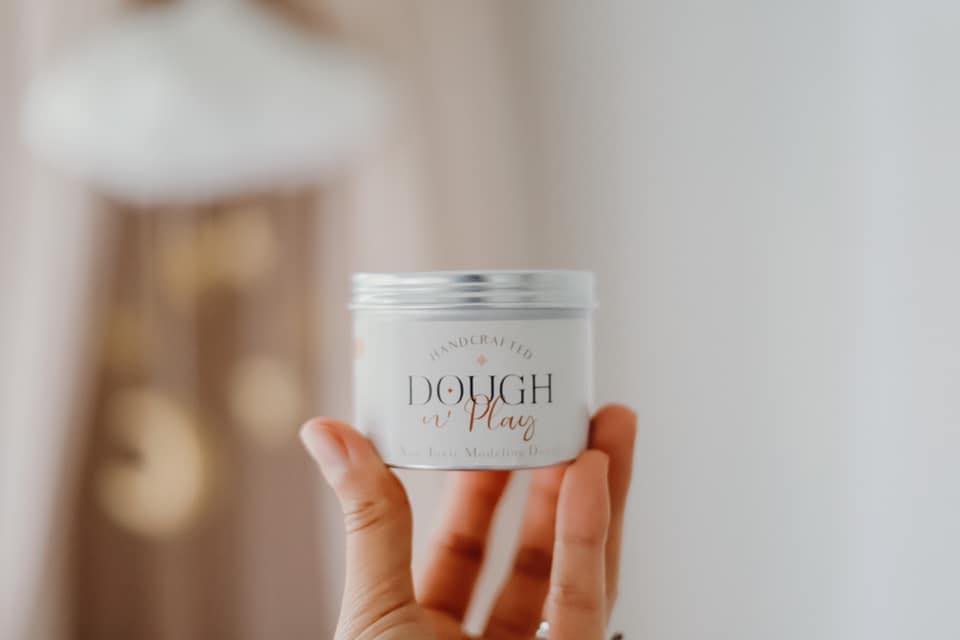
Eco-friendly and imaginative play things are important to me. After having my daughter, the wastefulness associated with childhood started to bother me. Another issue I realized was that many of the products marketed to children are made with toxic ingredients. Thus, I’m thrilled to introduce my own new business for a more mindful childhood. Together with my 7-year-old daughter, we make zero waste and all-natural modeling dough. All of our kids products are non-toxic, planet-friendly, and absolutely adorable.
Made on Salt Spring Island in BC, Canada, our tins of natural modeling dough offer a zero waste solution for kids gifts. To add an extra touch, we sell our delightful doughs alongside wooden toys hand made on Vancouver Island. Dough n’ Play has been a joyful way to put our vision for a better planet into action in our own way.
Well, I’m glad you asked! As an experienced Early Childhood Educator in British Columbia, my love for modeling dough play (intentional avoidance of a brand name here) began with my career in early childcare. Working in early learning centres in BC for a decade, it’s been a favourite play-based staple.
Let me tell you why I love offering natural modeling dough for the children in my care.
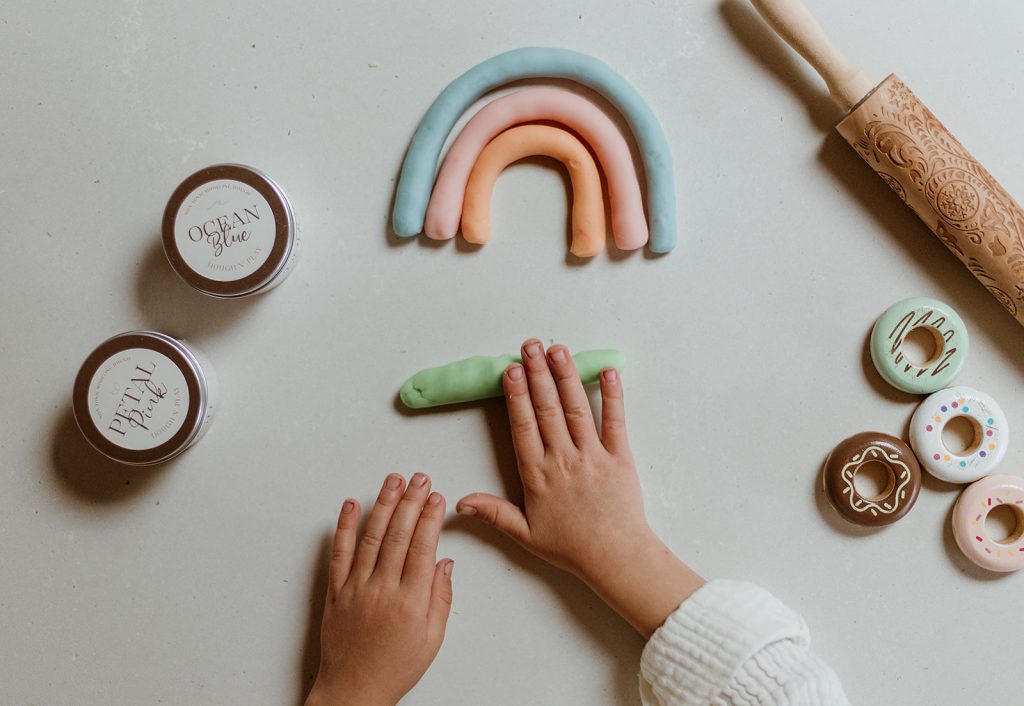
The benefits for developing children (as well as adults) are aplenty. Modeling dough is a material that can offer rich learning experiences for children in countless ways.
Children use their large and fine motor skills to manipulate modeling dough. Manipulating modeling dough with hands and tools in this way leads to strengthening muscles that are an important precursor to writing (and more).
Using those muscles is also a lot more tiring for children than we might realize as adults. This can make it ideal for a pre-nap or pre-bedtime activity, too.
Playing with modeling dough, children learn about gravity, physics and space as they build and construct.
Another reason why modeling dough makes a great learning toy for kids is that it can help develop language. When playing with your child, you can talk about and describe what you are doing, what you are using, and what you are making. This can be helpful in familiarizing children with words for shapes and other concepts. (“Let’s make a star!” “Oh look, you made a circle.”) You can work free-hand to create, or use natural modeling dough accessories. By making long “wormy” shapes, you can arrange them into letters and words as an introduction to written language and symbols for the younger set, and as an interesting means of reading and “writing” for the older child.
We can create practically anything out of natural modeling dough. This provides endless opportunities for supporting imagination as well as creative expression – important in Reggio philosophy (and my own). Giving children an outlet to explore the world and experiment they is important to learning and building on those concepts.
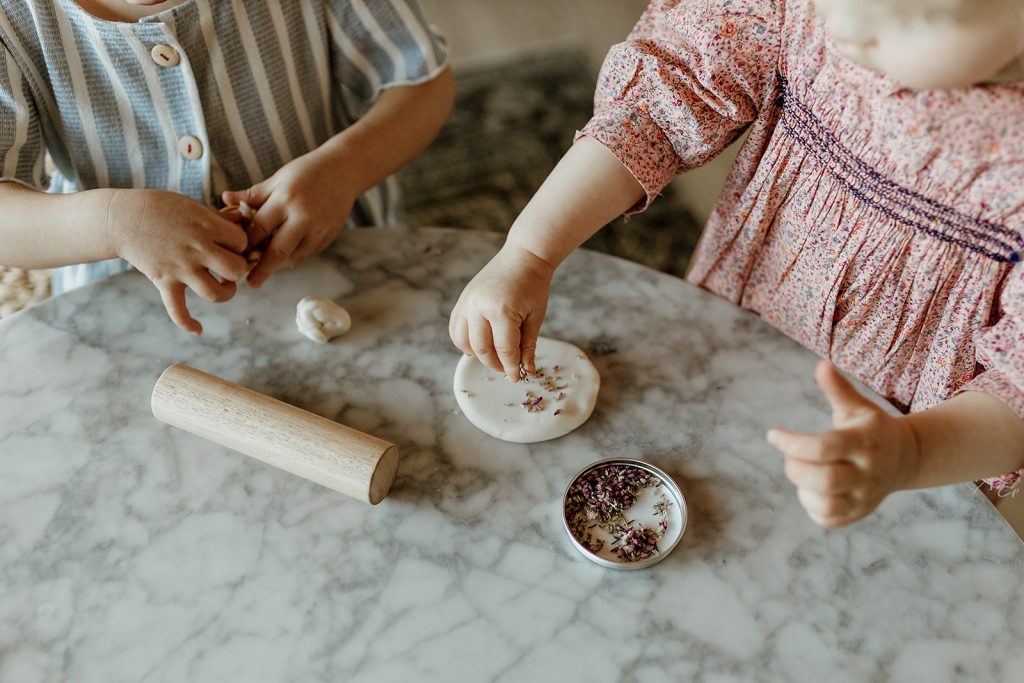
For example, a child who has heard of a “restaurant”, but may not have had that experience, or would like to reenact it. By playing pretend, children share their understandings of the concept. They co-create a whole scenario, learning from each other and the facilitating adults about what happens at a restaurant. Children can build on understandings of who is in a restaurant, what the expectations are, new words and phrases associated with visiting or working in a restaurant, and so and on.
Encouraging free play is something I know is essential for childhood. Modeling dough is a valuable support for being almost any kind of prop needed for imaginative play. Dough n’ Play has given me the opportunity to share the value of open-ended play, and encourage it by making open-ended play props more available to Canadian consumers.
If the positive power of play wasn’t enough to convince you that Dough n’ Play has a product worth investing in when buying local kids’ gifts made in BC, here’s another reason.
The plastic-laden, throw-away culture of childhood in North America is a sad reality. So many little plastic playthings are bought every day. Children’s attention is often drawn to useless objects because of a recognized character. These plastic toys are usually made in foreign countries by underpaid workers, without environmental considerations, and resulting in more trash in a landfill that won’t disappear from our planet any time soon.
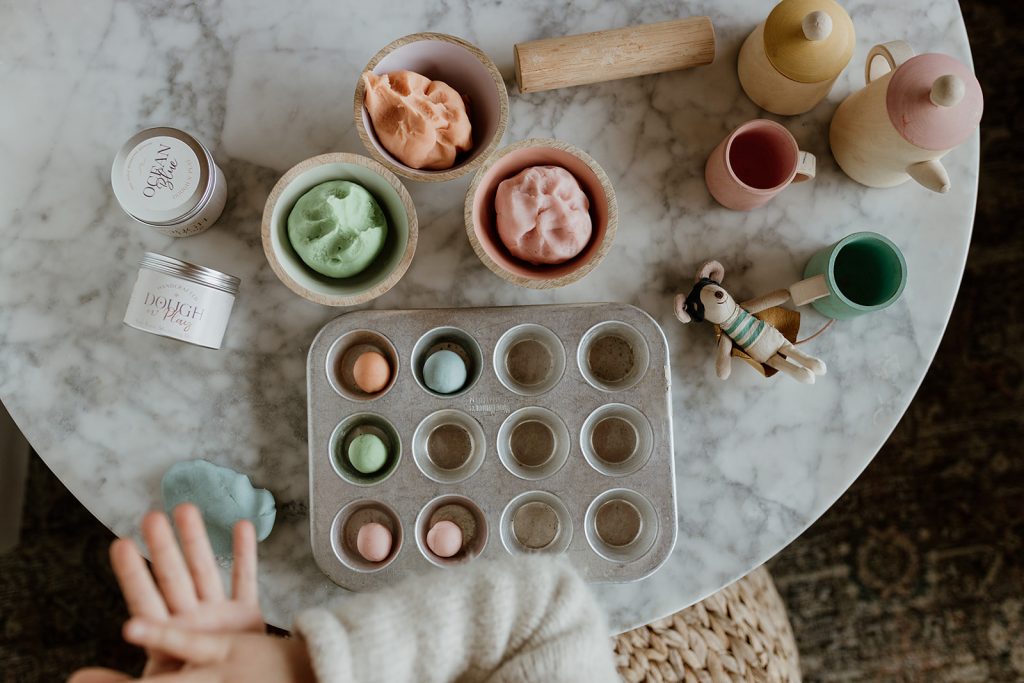
It’s overwhelming to think about, really. So what’s the solution? More options for kids that offer zero waste and non-toxic, natural toys!
We all love our kids and the youngsters we know. Giving people we like things makes us feel good. It’s not unusual to want to buy kids special gifts and see them smile with excitement at receiving them. I totally get it.
But we can all be a bit more careful about what kinds of purchases we’re making for them. Surely we can be mindful about what kind of effects it might have on the health of the planet we’re leaving to them.
It’s not only the health of the planet to consider. The health of our children themselves is something to think about when choosing gifts for kids. All toys are not made equally. The different ingredients and processes that some manufacturers take in producing toys for kids can be alarming.
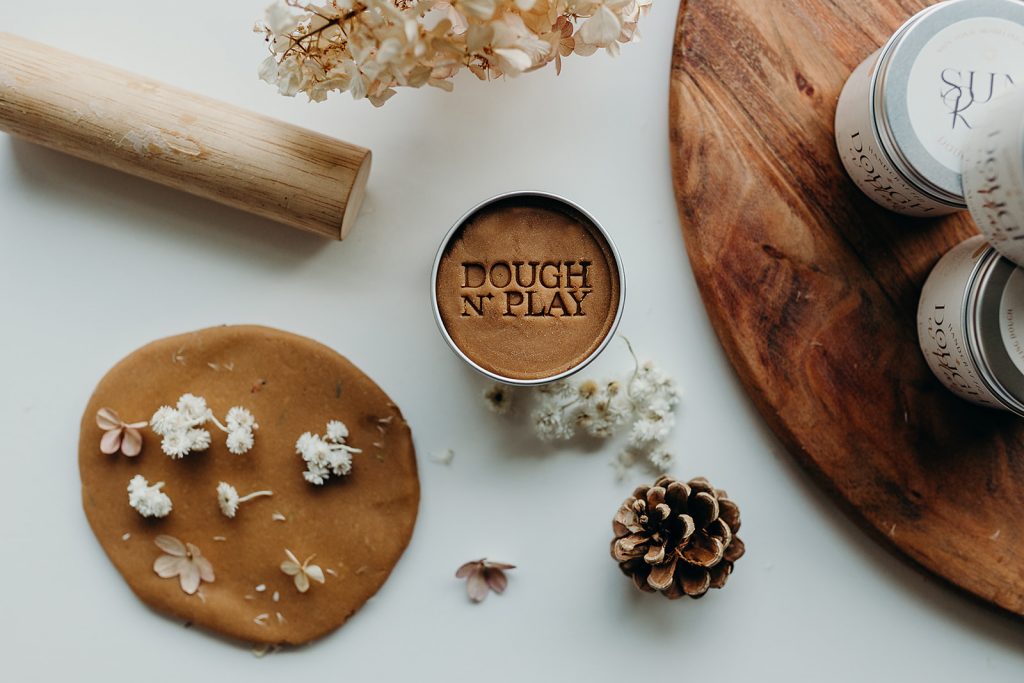
When I’m considering something for my child, especially when she was young and mouthing everything, toxicity is something on my mind. What a toy is made of makes a big difference in how good I feel about letting her play with it.
The doughs my daughter and I hand-make for Dough n’ Play are made with non-toxic, natural ingredients bought here in BC. Good for the local economy, and supporting a real Canadian family with your financial vote of confidence in our vision for better business.
Have I convinced you yet to check out the Dough n’ Play website? It’d be swell if you did. Even if you don’t end up ordering anything, more eyes on our site might help let search engines know we’re a little bit interesting to people. You never know what impact each little thing you do has!
Thanks for reading this post! If you made it this far, would you do us a favour and make sure you’re following this blog’s Facebook page? There is also Dough n’ Play’s Facebook page and/or @doughnplay on Instagram. Shares, comments and joining our email list for new post notifications are always appreciated.